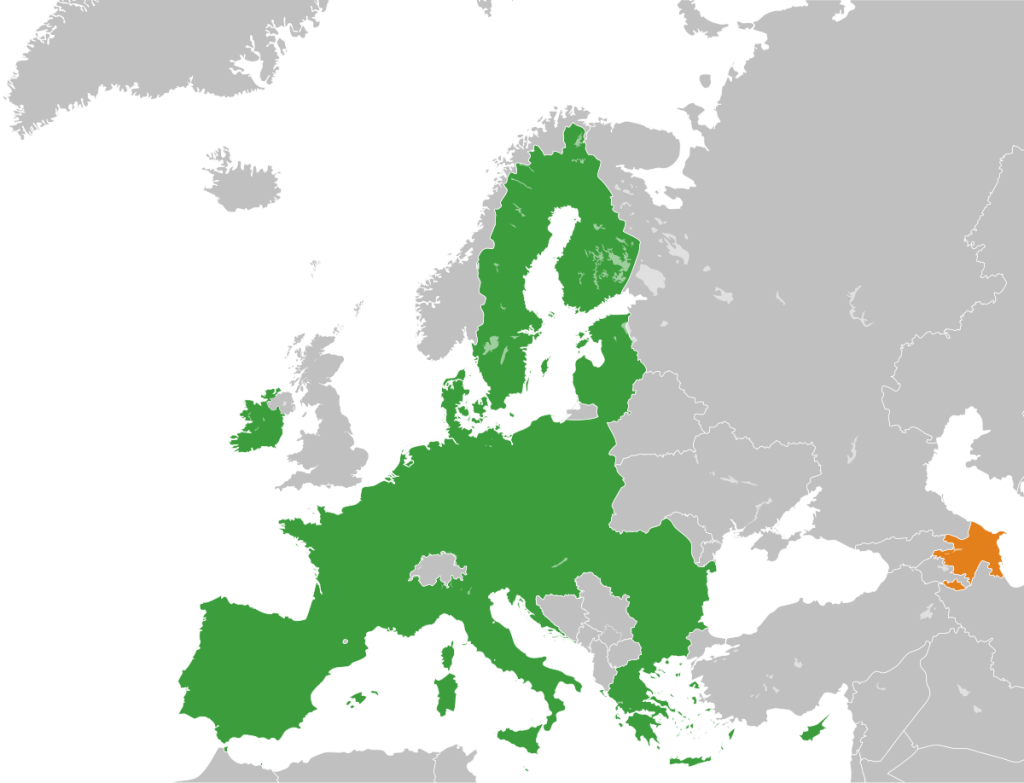Azerbaijan is a country located at the crossroads of Eastern Europe and Western Asia. It occupies a unique geographical position, bordered by the Caspian Sea to the east, Russia to the north, Georgia to the northwest, Armenia to the west, and Iran to the south. This strategic location has led to a blend of cultures, languages, and traditions, making Azerbaijan a fascinating case study when considering its classification within Europe and Asia.
The Geopolitical Landscape of Azerbaijan
To understand whether Azerbaijan is in Europe, one must first delve into the geopolitical landscape. Geographically, the country is often considered part of Asia due to its location on the Asian continent. However, Azerbaijan is also a member of several European institutions, including the Council of Europe and the European Union’s Eastern Partnership program. This duality raises questions about its identity and position in the broader context of Europe.
The capital city, Baku, showcases a mix of modern and traditional elements, with its stunning architecture and vibrant culture. The presence of European influence in urban planning, education, and lifestyle can be observed, which further complicates the discussion of Azerbaijan’s European identity.
Azerbaijan’s Cultural Influences
Azerbaijan is home to a rich tapestry of cultural influences that draw from both its Asian roots and European connections. The country’s history has been shaped by various empires and civilizations, including Persian, Ottoman, and Russian. This historical context has contributed to a unique cultural identity that incorporates aspects from both regions.
The Azerbaijani language, part of the Turkic language family, is predominantly spoken in the country. However, due to Azerbaijan’s history and its interactions with various cultures, Russian and Persian also hold significant importance. The arts, including music, dance, and cuisine, further reflect this blend, with Azerbaijani cuisine featuring influences from both Eastern and Western culinary traditions.
Azerbaijan’s Political Relations with Europe
Azerbaijan’s political relations with European countries play a vital role in its classification as part of Europe. The country has been actively engaging with European nations, primarily through energy partnerships. Azerbaijan is a significant player in the oil and gas sector, providing energy resources to Europe, which has strengthened its ties with European countries.
Additionally, Azerbaijan’s participation in various international organizations and forums highlights its commitment to fostering relationships with Europe. The country has sought to balance its relationships with both Eastern and Western powers, navigating complex geopolitical dynamics while promoting its interests.
The Debate on Azerbaijan’s European Identity
The question of whether Azerbaijan is in Europe is not merely geographical but also cultural and political. While some argue that Azerbaijan’s location in Asia defines its identity, others contend that its political affiliations and cultural exchanges with European nations qualify it as part of Europe.
This debate often invokes discussions about the criteria for defining a country’s identity. Is it solely based on geography, or should cultural, historical, and political factors also be considered? Azerbaijan’s multifaceted identity exemplifies the complexities inherent in such discussions.
Conclusion: A Country at the Crossroads
In conclusion, Azerbaijan serves as a prime example of a country at the crossroads of Europe and Asia. Its unique geographical location, rich cultural influences, and active engagement in European politics contribute to a nuanced identity that defies simple categorization. Whether one views Azerbaijan as part of Europe or Asia, it undoubtedly embodies the complexities of modern geopolitical landscapes, making it an intriguing subject for further exploration. The ongoing dialogue about its identity reflects broader themes of globalization and cultural exchange in an increasingly interconnected world.
